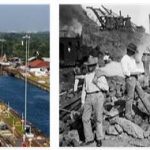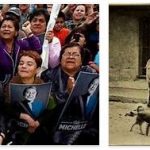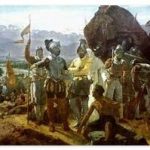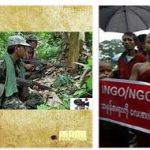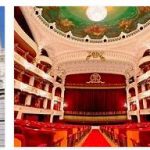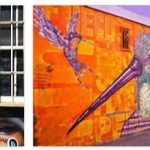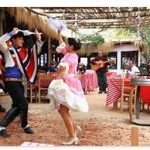On 11 September of the same year, with a military coup (in which Allende himself died) all democratic freedoms were suppressed, the Chamber and the Senate dissolved, all party activities suspended and harsh repression against representatives was implemented and followers of Unidad Popular. Political power was entirely concentrated in the hands of a military junta (composed of the commanders-in-chief of the three arms and the carabineros) and General A. Pinochet took office at the top of the state., formally recognized as supreme head of the state and president of the Republic in 1974. The following years proved the substantially dictatorial form of the new regime, despite the “plebiscites” that confirmed Pinochet as president (1978) and approved a new draft Constitution (1980): presented as a means of transition to democracy, it nevertheless contained clauses that would have allowed the regime to remain unchanged for years. The following decade, in addition to the increase in terrorist activity (mainly supported by the Patriotic Front M. Rodriguez, also responsible for an attack on the head of state), saw the constant strengthening of the legal opposition, expressed above all by the multi-party group of the Democratic Alliance (1983) and supported by the criticism of the Catholic Church, promoter of the National Agreement for the transition to full democracy (1985); at the same time, from 1986 also the United States began to show criticism of the repression carried out by the Chilean government. In October 1988, after months of preparation and the return of most of the exiles, a plebiscite was held on the candidacy for President of the Republic of General Pinochet, won by the opposition forces coalesced in the “Comando por el No”.
As a consequence of this result, the latter, after refusing to accept their proposed amendments to the Constitution, chose their candidate for the office in Patricio Aylwin, president of the Christian Democrats: the presidential elections of December 1989 sanctioned their victory, determining in March 1990 the transfer of governmental powers to a Christian Democratic and Socialist majority coalition. Aylwin managed to consolidate the regained democracy and the presidential and political elections of 1993 confirmed the majority of the center-left opposing the right. March 11, 1994 Eduardo Frei, son of the former president and Christian Democrat, became the new president. In 1995 in Chile the political and economic foundations laid by the President of the Republic Eduardo Frei during his first year in office were well accepted by the majority of the population, eager to forget the hard years of the dictatorship. But the first years of Frei’s mandate were characterized by the delicate question of the relationship between political power and the army, still commanded by Pinochet. In confirmation of the strong role still held by the army, not only did the Chilean Senate reject (April 1996) the proposal of President Frei to reduce its political weight and to abolish the nine senatorial seats for the appointment of the military leaders, but, in March 1998, welcomed into its ranks General Pinochet who, having left the leadership of the army, he became a senator for life. The lively protests with which the appointment had been welcomed throughout the country did not serve to make the Senate withdraw from the decision.
In the same year, during a stay in London, Senator Pinochet was arrested on an international arrest order issued by Spain for two inquiries into the disappearance of Spanish citizens during the bloody years of the dictatorship in Chile, a country located in South America according to thembaprograms. health, he was not extradited and in March 2000 he freely returned to his homeland. Meanwhile, the economic crisis, which hit the country, and the tensions caused by the arrest of Pinochet led to a reshuffle of the government. With the presidential consultations of January 2000 a socialist, Ricardo Lagos Escobar, president of the Democratic alliance, the left wing that in the eighties had gathered the opponents of the regime. Among the most important measures of his government, the abolition of the death penalty (April 2001), which had remained in force in the country for 126 years. In January 2006 the presidential elections were held, won by the socialist candidate Michelle Bachelet with more than 53% of the votes. Former dictator A. Pinochet, whose immunity was waived in 2005, died in December 2006. In the presidential elections at the end of 2009, former president Frei and Sebastiàn Piñera, conservative and leader of the National Renewal party, faced each other; Piñera won with 52% of the votes in the second round and took office in March 2010, a few days after the earthquake that hit the country hard. In December 2013, former President Bachelet won the presidential elections, defeating the right-wing candidate Evelyn Matthei. In 2017, the presidential elections were won by former president Piñera. The arrest of economic growth and The start of a recession led to violent protests in 2019 following the government’s decision to increase public transport fares. In October 2020, a referendum sanctioned the will of the Chilean people to draft a new Constitution to replace those currently in force, enacted during the Pinochet dictatorship. The elections to the Constituent Assembly which took place in May 2021 saw the reformist forces of the left dominate.

